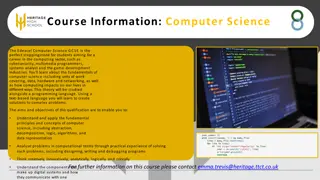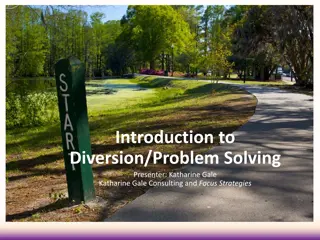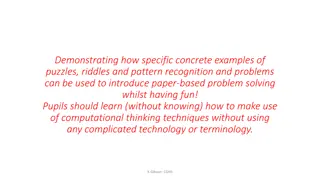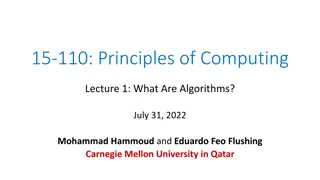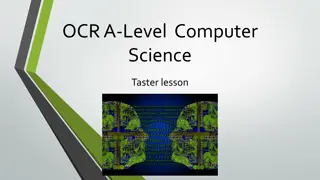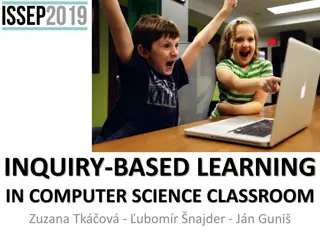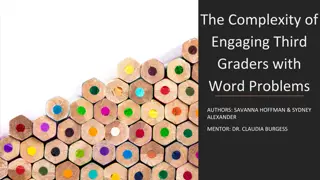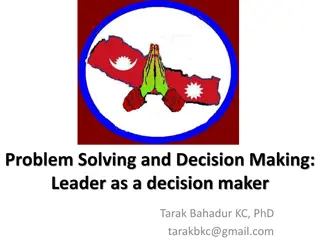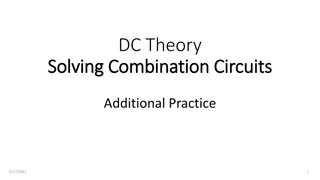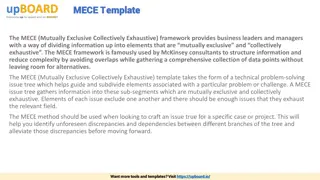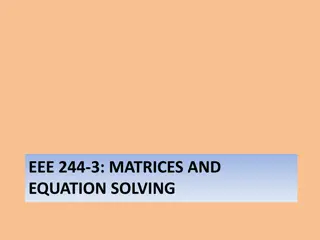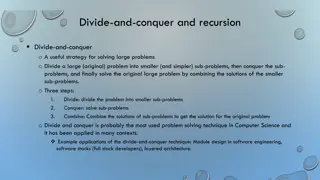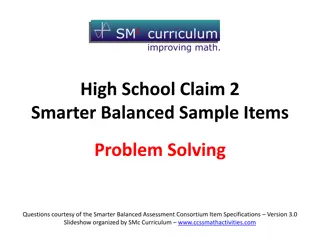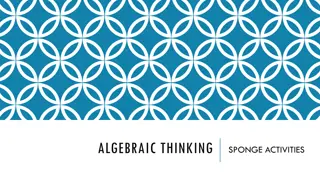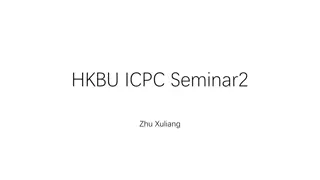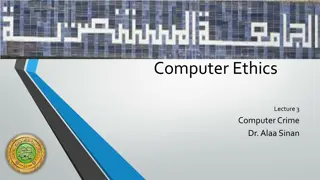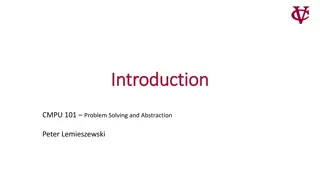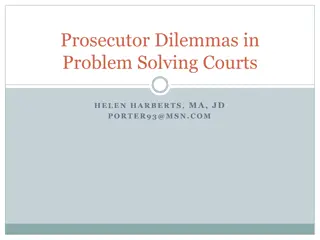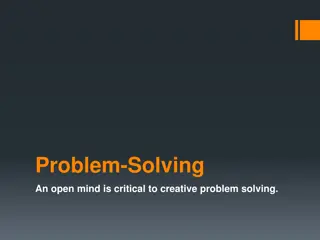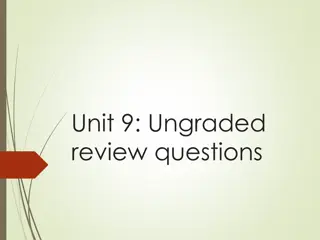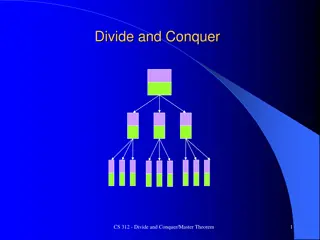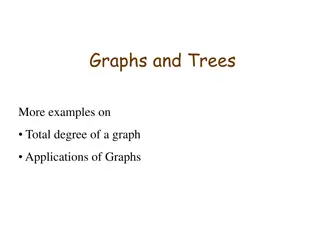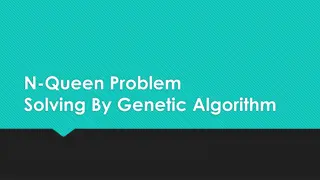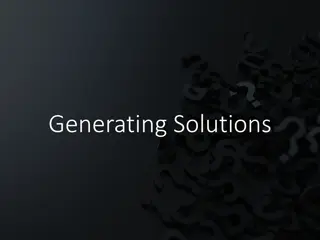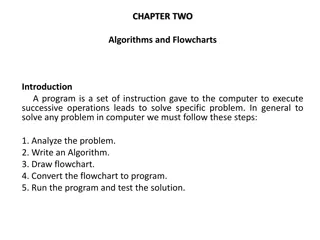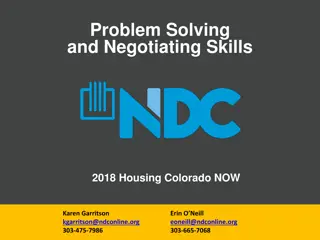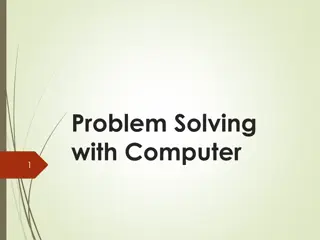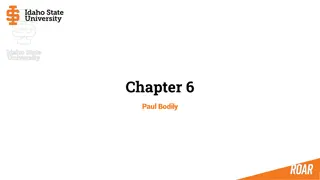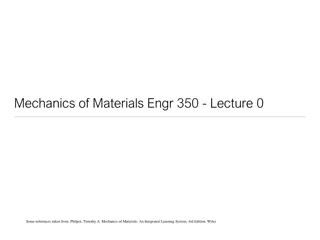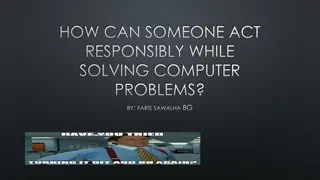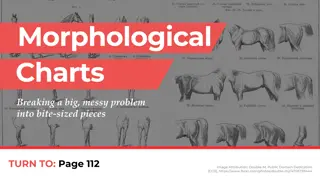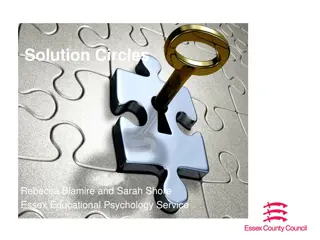Understanding Computer Organization and Architecture
A computer system is a programmable digital electronics device that processes data as per program instructions to provide meaningful output. It comprises hardware and software components, with hardware being the physical parts and software essential for driving the hardware. Computer organization fo
14 views • 71 slides
Explore Edexcel Computer Science GCSE Course Information
The Edexcel Computer Science GCSE is an ideal pathway for students interested in a computing career, covering fundamental computer science principles, practical problem-solving using a programming language, and understanding digital systems. The course focuses on developing creativity, analytical th
1 views • 4 slides
Introduction to Problem Solving for Homelessness Prevention
Explore problem-solving strategies to address and prevent homelessness, focusing on rapid resolution and diversion methods. Learn how problem-solving differs from traditional prevention approaches and the benefits it brings to individuals and the system.
1 views • 31 slides
Engaging Paper-Based Problem Solving for Computational Thinking Skills
Implementing paper-based problem-solving activities using puzzles, riddles, and pattern recognition can effectively introduce computational thinking without the need for complex technology or terminology. Through real-life scenarios like transporting a fox, chicken, and corn across a river or encodi
0 views • 23 slides
Solving Problems and Finding Solutions Through Algorithms
Explore the concept of algorithms and problem-solving methods in daily and professional life, illustrated with examples ranging from choosing a meal to creating schedules for courses. Understand the importance of constraints, available knowledge, and requirements when seeking solutions. Learn how to
1 views • 15 slides
Understanding Computer Architecture and Organization
Computer architecture and organization are fundamental aspects of computing systems. Computer architecture focuses on the functional design and implementation of various computer parts, while computer organization deals with how operational attributes come together to realize the architectural speci
3 views • 40 slides
Dive into OCR A-Level Computer Science Taster Lesson
Explore the world of OCR A-Level Computer Science through a taster lesson covering fundamental principles, computational thinking, problem-solving, and more. Unveil the creative and practical aspects of computer science, offering a blend of theory and real-world applications. Delve into computer sys
1 views • 20 slides
Computer Science Department Information and Courses Offered
The Computer Science Department provides information on courses offered for GCSE or BTEC qualifications, specifically focusing on the AQA GCSE in Computer Science. The course equips students with valuable thinking and programming skills essential in the modern workplace, covering key concepts and pr
3 views • 7 slides
**Exploring Inquiry-Based Learning in Computer Science Education**
Inquiry-based learning (IBL) in computer science classrooms focuses on fostering communication, collaboration, decision-making, and problem-solving skills among students. The approach involves students constructing knowledge through independent, active activities based on real-world experiences. How
0 views • 18 slides
Investigating Strategies to Engage Third Graders with Word Problems
Students often struggle with mathematical word problems, leading to panic and guessing in solving them. This study aims to understand and address these challenges by using visualization and tactile strategies to improve students' problem-solving skills. The research focuses on alleviating students'
0 views • 21 slides
Mastering the Art of Decision Making: Problem Solving Strategies
Explore the essence of decision making and problem-solving through a comprehensive session outline. Understand the importance, conditions, styles, processes, and ethical considerations in decision making. Learn how identifying problems, finding solutions, and implementing them are crucial steps in t
0 views • 42 slides
Evolution of Algorithms and Computer Science Through History
The history of algorithms and algorithmic thinking dates back to ancient times, with the development of general-purpose computational machines by Charles Babbage in the 19th century marking a significant advancement. The term "computer science" emerged in 1959, encompassing theoretical computer scie
1 views • 39 slides
Solving Combination Circuits: Practice and Problem-Solving
Explore solving combination circuits through practice exercises and class problem-solving techniques involving equivalent resistance determination, PIER chart application, Kirchhoff's laws, current and voltage analysis, and power dissipation calculations. Enhance your understanding of circuit analys
3 views • 26 slides
Understanding the MECE Framework for Efficient Problem-Solving
The MECE (Mutually Exclusive, Collectively Exhaustive) framework is a powerful tool used by business leaders and consultants like McKinsey to structure information, reduce complexity, and gather comprehensive data without overlaps. It involves creating issue trees that subdivide problem elements int
1 views • 4 slides
Understanding Matrices and Solving Equations in Electrical Engineering
Matrices play a crucial role in solving linear equations in Electrical Engineering applications. Learn about matrix structures, special matrices, inverses, transposes, system of linear equations, and solving methods using MATLAB/Python. Explore the application of matrices in solving voltage-current
1 views • 24 slides
Uninformed Search Chapter 3 - Goal-based Agents and Problem Solving
Discussing goal-based agents and problem solving in artificial intelligence, the chapter covers topics such as representing states and actions, various search algorithms like breadth-first and depth-first search, as well as the problem space principle developed by Allen Newell and Herb Simon. Exampl
2 views • 52 slides
Divide and Conquer: A Strategy for Problem Solving
Divide-and-conquer is a powerful problem-solving technique in Computer Science where a large problem is divided into smaller sub-problems, conquered individually, and then combined to solve the original problem. Through three steps - Divide, Conquer, and Combine - complex problems can be efficiently
3 views • 18 slides
High School Sample Problem-Solving Questions
Explore sample high school level problem-solving questions involving capacity, pricing, ingredient proportions, and geometry concepts. Test your math skills with real-world scenarios provided in the questions. Practice and improve your problem-solving abilities with these challenging exercises.
0 views • 39 slides
Fun Algebraic Thinking Activities for Learning
Engage in a series of interactive algebraic thinking activities to enhance your problem-solving skills. From true or false equations to solving open sentences, these sponge activities will challenge and strengthen your mathematical reasoning abilities. Explore different identities and test your know
0 views • 27 slides
Advanced Seminar on Problem Solving Techniques
Explore various problem-solving techniques such as prefix sum, hash, GCD, LCM, and more in this advanced seminar. Learn how to calculate complex mathematical functions efficiently and sort arrays in linear time complexity. Enhance your problem-solving skills and algorithmic thinking.
1 views • 23 slides
Understanding Computer Crimes and Prevention Strategies
Computer crimes involve illegal acts utilizing computer systems, leading to various consequences. This lecture covers the types of computer system attacks, motives behind computer crimes, costs, prevention strategies, and reflection on the discussed topics. It emphasizes the increasing scope of comp
1 views • 20 slides
Introduction to CMPU 101: Problem Solving and Abstraction
An exploration of Computer Science through the lens of computation, algorithms, and data structures. Discover the essence of problem-solving in the realm of computing, illustrated with examples and definitions from a foundational textbook. Follow a step-by-step guide to computational problem-solving
0 views • 15 slides
Challenges and Innovations in Problem-Solving Courts
Helen Harberts, a skilled MA and JD with expertise in problem-solving courts, delves into the dilemmas faced by prosecutors in these courts. Through in-depth insights and thought-provoking questions, the narrative explores the effectiveness of traditional responses to addiction-based offenses, publi
0 views • 65 slides
The Importance of Problem-Solving Skills in Everyday Life
Developing effective problem-solving skills is crucial as they play a significant role in various aspects of our daily lives, from simple tasks to complex challenges. This article explores the significance of problem-solving, provides strategies like algorithms and heuristics, discusses obstacles en
0 views • 34 slides
Insights into Polynomials Vanishing on Cartesian Products and the 3POL Problem
This joint work explores polynomials vanishing on Cartesian products, focusing on the 3POL problem involving three sets of points and a 6-variate polynomial. It discusses the running time of solving the explicit 3POL problem and compares it to the well-studied 3SUM problem in theoretical computer sc
0 views • 29 slides
Cognitive Problem-Solving Techniques in Everyday Situations
This review touches on various aspects of problem-solving scenarios, including educational philosophies by Lockhart and Kaphur, the Solomon method in hot dog eating contests, the Wright brothers' aviation pioneering, and obstacles like functional fixedness in problem-solving. It challenges readers t
0 views • 8 slides
Understanding the Divide and Conquer Technique in Computer Science
The Divide and Conquer approach is a powerful strategy used in computer science to break down large problems into smaller, more manageable subproblems. By recursively solving these subproblems and combining their results, this technique offers a structured way to tackle complex tasks efficiently. Th
1 views • 59 slides
Interesting Graphs and Puzzles for Problem-Solving Enthusiasts
Explore various scenarios involving graph theory and puzzles like handshakes at a party, a tricky river crossing situation with multiple constraints, a jug measuring problem, and the classic Rubik's cube challenge. Also, ponder over a cash exchange problem faced by a group dining at a restaurant. Th
0 views • 8 slides
Solving N-Queen Problem Using Genetic Algorithm
Solving the N-Queen problem involves placing queens on a chessboard in such a way that they cannot check each other. The genetic algorithm approach addresses this problem through representations like phenotype and genotype, fitness evaluation based on queen penalties, mutations involving permutation
0 views • 8 slides
Enhancing Creativity and Problem Solving Techniques
Explore key outcomes in fostering creativity, identifying and removing blocks to problem-solving, and understanding the process of generating new ideas through concepts like creativity vs critical thinking and block-busting. Learn strategies including brainstorming, defer judgment, and morphological
0 views • 15 slides
Math Problem Solving Challenges and Solutions
Practice your math skills with various problem-solving questions involving decimals, unit rates, ratios, GCF/LCM, percent, and proportions. Explore scenarios like calculating attendance averages, savings goals, change received from purchases, material remaining after cutting, and cost calculations f
0 views • 52 slides
Enhancing Problem-Solving Skills in Mathematics Workshops
In this workshop focused on problem-solving in mathematics, participants engage in various tasks and activities to develop a deep understanding of problem-solving strategies. The key messages emphasize the importance of integrating problem-solving into daily mathematics learning, utilizing multiple
0 views • 34 slides
Introduction to Algorithms and Flowcharts
A program consists of instructions given to a computer to execute operations and solve specific problems. To solve a problem in computers, steps like analyzing the problem, writing an algorithm, creating flowcharts, converting flowcharts to programs, and testing the solution must be followed. Algori
1 views • 18 slides
Enhancing Problem-Solving and Negotiating Skills in Deal Structuring
Today's learning objectives focus on recognizing financial and non-financial aspects of problems, negotiating effectively in deals, and creating win-win solutions. Successful deal structuring involves understanding both financial and non-financial factors. The art of problem-solving lies in using fi
0 views • 13 slides
Problem-Solving Process with Computers
Utilizing computers to solve problems involves various stages such as problem analysis, algorithm development, flowcharting, programming, compilation, debugging, and documentation. It is crucial to plan and understand the problem thoroughly before coding to ensure accurate results. Each step in the
0 views • 55 slides
Enhancing Programming Skills: Iteration and Problem Solving in CS Course
Central concepts of iteration and problem-solving techniques in a Computer Science course are explored and valued by students in Chapter 6. Feedback highlights the effectiveness of TA support, engaging teaching methods, and practical exercises. Suggestions for improvement include better alignment of
0 views • 12 slides
Engineering Mechanics Overview and Problem-Solving Techniques
Explore the fundamental concepts of Engineering Mechanics with references from "Mechanics of Materials: An Integrated Learning System" by Timothy A. Philpot. Learn about approved calculators, problem-solving documentation, free body diagrams (FBDs), and centroids. Enhance your understanding of coord
0 views • 12 slides
Responsible Practices for Safe Computer Problem Solving
When solving computer problems, it is crucial to act responsibly to ensure safety. Key practices include switching off power points, never opening device cases, avoiding the use of force when handling cables, ensuring all cables are disconnected before moving devices, and avoiding lifting heavy equi
0 views • 7 slides
Utilizing Morphological Charts for Problem Solving
Explore the process of breaking complex problems into manageable components using morphological charts. This method helps in generating ideas for solving each sub-problem efficiently. Dive into practical exercises and examples to enhance problem-solving skills.
0 views • 10 slides
Solution Circles: A Creative Problem-Solving Tool
Solution Circles is a powerful problem-solving tool that involves a problem presenter, process facilitator, note taker, and brainstorm team. The process includes outlining the problem, brainstorming creative solutions, positive dialogue, and setting achievable first steps within a short timeframe. T
0 views • 10 slides

